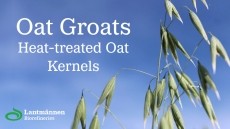International food trade has overall positive effect on health, but red meat imports can lead to excess death, study suggests

The one-quarter of all food that is traded internationally increases availability and variety for consumers around the world, not to mention increasing food security.
However, as a study in Nature Food suggests, internationally trading food can import dietary patterns that negatively impact human health.
Importing dietary risk
The study assessed the link between the levels of trade, often measured through the level of trade liberalisation and trade, and the levels of poor physical health linked to dietary risk, which was measured chiefly through mortality.
Using trade data to track traded food, and established risk-disease relationships of imported foods alongside mortality rates and population numbers, the study made an estimate of how fruits, nuts, legumes, vegetables and red meat positively and negatively impacted mortality.
In 2019, more than 190 million tonnes of food related to dietary risks, around 3-12% of such foods, were exported from one country to another, including 25 million tonnes of red meat. A far higher proportion of food in Europe was imported than in Africa.
Overall, trade had a positive relationship with mortality. The study estimated that more than 1.2 million diet-related deaths, such as those related to coronary heart disease, cancer and strokes, were avoided through food trade, including 597,000 through fruit imports, 380,000 through vegetable imports, 300,000 through nut imports and 98,000 through legume imports. More than half of the prevented deaths were associated with food imports to Europe. In 152 out of 153 importing countries, imports resulted in health benefits, with the most benefitted being the US, Russia, Germany, China and the UK.
However, the study suggested, red meat imports added an additional 147,000 deaths. Papua New Guinea, the only country overall affected negatively by imports, was so impacted by imports of red meat, which superseded the positive impact of other foods.
Countries that contributed to reductions in mortality by exporting their produce included China (vegetables and nuts) the US (nuts and legumes), Brazil and Spain (fruit and vegetables) and Turkey (fruits), while Germany, Denmark, Ireland, Uruguay and Paraguay all contributed to increased mortality rates through the export of red meat.
The net change in mortality rate that international food trade is responsible for, the study concludes, is around a fifth (19%) of the total dietary health burden resulting from an overconsumption of red meat and an underconsumption of fruit, vegetables, nuts and legumes.
The research presents, overall, a positive picture of international food trade, albeit one that affects developed countries far more positively than others, through imports of healthy food largely from less developed countries.
Sourced From: Nature Food
'International food trade contributes to dietary risks and mortality at global, regional and national levels’
Published on: 9 October 2023
Doi: https://doi.org/10.1038/s43016-023-00852-4
Authors: M. Springmann, H. Kennard, C. Dalin & F. Freund














